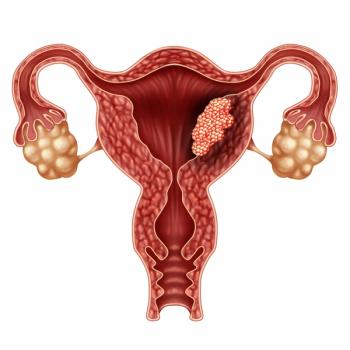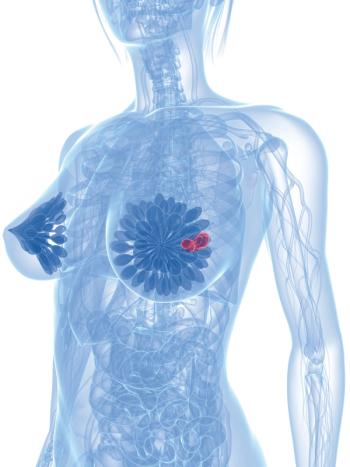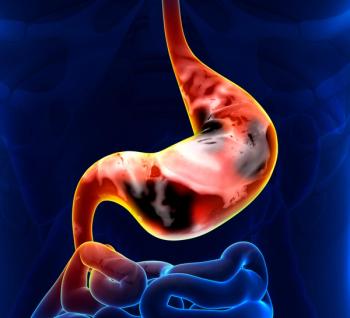
Patients who had recurrence in the radiation field experienced similar responses vs those with recurrence outside the radiation field.

Your AI-Trained Oncology Knowledge Connection!


Patients who had recurrence in the radiation field experienced similar responses vs those with recurrence outside the radiation field.

Despite all groups completing chemoradiation within 56 days, delays contributed to a nonsignificant difference in length between Black vs White patients.

The combination regimen was well tolerated in JAK inhibitor-naïve myelofibrosis, with instances of thrombocytopenia managed with dose modifications.

The adverse effect profile of abemaciclib plus hormonal therapy was comparable with prior reports of CDK4/6 inhibitors.

Overall survival outcomes were enhanced with Orca-T vs allogeneic hematopoietic stem cell transplantation in patients with hematologic malignancies.

A slightly higher complete response rate was observed with the metformin regimen vs with the levonorgestrel-releasing IUD alone in endometrial cancer.

No deaths or significant adverse effects were reported in the screened population among those who received hysteroscopic resection for endometrial cancer.

As artificial intelligence has arrived in the oncology field, experts discuss how this new technology can have implications for transforming clinical practice.

Clinical guidelines aimed at both clinicians and patients seek to educate and include both parties in clinical decision-making processes.

Testing AI-powered tools globally across diverse patient groups may ensure that they are accurate and consistent for all patients.

The safety profile of vepdegestrant in ER–positive/HER2– breast cancer was consistent with its observed profile in previous studies.

The test led to a modification in treatment plan for 48.1% of those with stage I to III HER2-positive breast cancer, 73.5% of which were reductions.


Breast MRI in patients with newly diagnosed breast cancer increased mastectomy rates and biopsy needs.

The assistance of AI-based computer-aided detection for mammogram screenings did not impact recall rates in a radiologist’s standard single reading.

Lenalidomide capsules and dasatinib tablets have received FDA approval through an abbreviated new drug application for various hematologic malignancies.

Patients with driver gene–negative non–small cell lung cancer who received immunotherapy beyond progression experienced better survival outcomes.

The safety profile of trastuzumab deruxtecan in the phase 3 DESTINY-Gastric04 trial was consistent with the established safety profile of the agent.

The observed safety profile of HA121-28 was similar to that of other multi-targeted RET tyrosine kinase inhibitors.

A real-world study assessed treatment patterns and outcomes of elderly patients with lenalidomide-refractory multiple myeloma after 1 to 3 therapy lines.

Daratumumab would become the sole anti-CD38 agent available for all newly diagnosed multiple myeloma types if approved.

Antitumor efficacy end points favored placebo over trilaciclib prior to FOLFOXIRI/bevacizumab in patients with untreated metastatic colorectal cancer.

In a small cohort of patients with MMS/pMMR CRC, the suvemcitug and envafolimab pharmacokinetic profiles were comparable with prior monotherapy studies.

AUTO4 CAR T cells plus fludarabine and cyclophosphamide was well tolerated in patients with relapsed or refractory peripheral T cell lymphoma.

Daratumumab plus lenalidomide/dexamethasone for multiple myeloma showed improved 5-year health-related quality of life vs lenalidomide/dexamethasone alone.

Phase 2 study results revealed NP-G2-044 plus standard of care anti–PD-1 therapy indicated treatment exhibited responses across at least 7 cancer types.

Support for the application comes from the efficacy data reported in the phase 1 ELM-1 and phase 2 ELM-2 trials.

Support for the supplemental biologics license application is based on phase 3 KEYNOTE-689 trial data.

Phase 3 CheckMate-8HW trial results evaluating the combination in microsatellite instability–high or mismatch repair deficient CRC supported the decision.

Results from the phase 1/2a SeCuRE trial support the FDA decision for patients with metastatic castration-resistant prostate cancer.